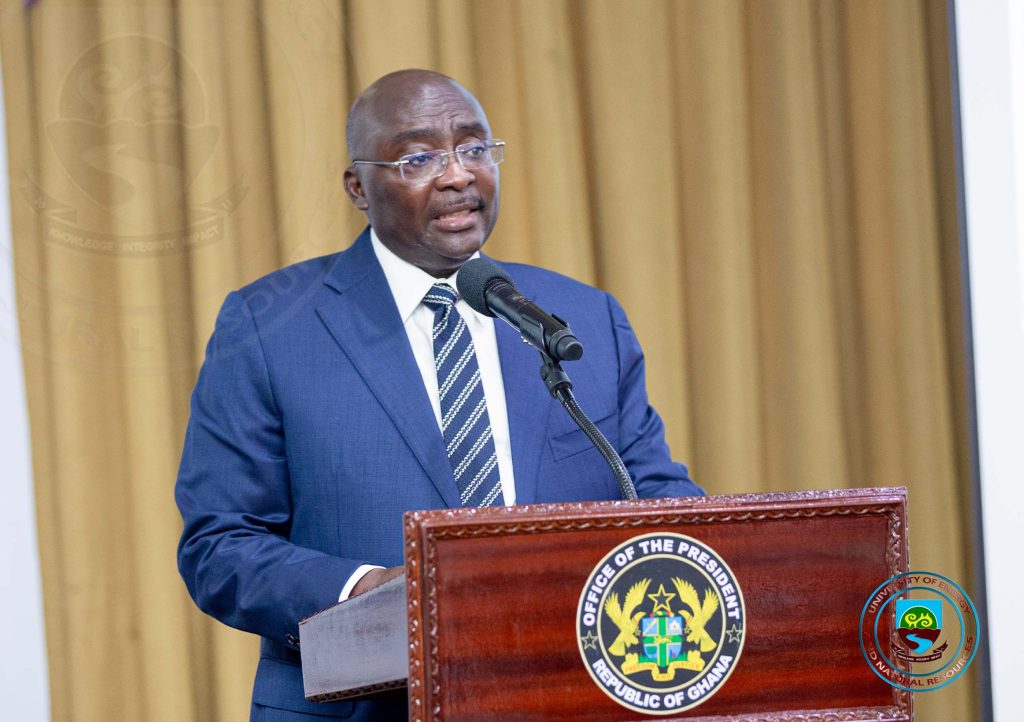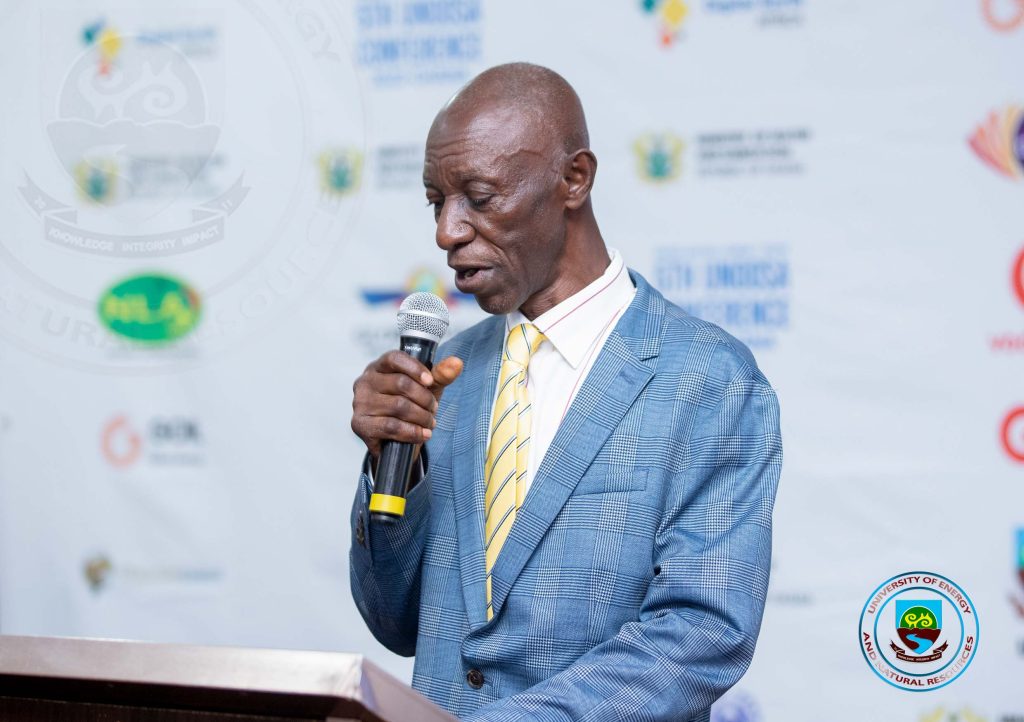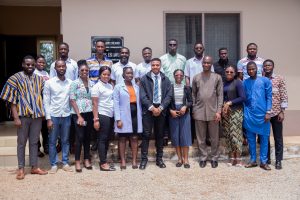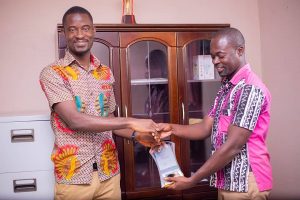The Vice-President of the Republic of Ghana, H. E. Dr. Mahamudu Bawumia has commended the University of Energy and Natural Resources (UENR), Sunyani for championing the course to promote space technology for development in Ghana and the sub-region. He said the University through its Earth Observation Research and Innovation Centre (EORIC) at the School of Engineering is the only institution providing real-time satellite data on fire outbreaks through monitoring and modelling to curb wildfires in West Africa, which helps preserve the forest and the environment. He also acknowledged that the Centre has an automated weather station that forecasts reliable data daily on rainfall, which is beneficial to farmers and other agencies to help improve the agricultural sector in Ghana and elsewhere.
The Vice-President was speaking at the closing ceremony of the 5th International Conference on the Use of Space Technology for Water Resources Management which was organized from May 10 to 13, 2022 at Alisa Hotel by the United Nations Office for Outer Space Affairs (UNOOSA), the Government of Ghana, and the Prince Sultan Bin Abdulaziz International Prize for Water (PSIPW). According to the Vice-President, UENR is one of the institutions that complements the Ghana Space, Science and Technology Institute (GSSTI) and the Ministry of Environment, Science, Technology and Innovation (MESTI) to place the country on the international front on digital and space technology subject matters that are requirements to compete in the global village. He expressed appreciation to the Vice-Chancellor of UENR, Prof. Elvis Asare-Bediako for leading the University to host the conference aimed at promoting the use of space technology in water management to the benefit of developing countries.

Disclosing the government’s efforts to harness space technology development, the Vice President said that the government is embarking on several strategies on space technology in the Country. He mentioned that soon the Ghana Space Policy would be formulated to strengthen the activities of the space-related institutions in Ghana for national growth. Dr. Bawumia disclosed that Ghana has also initiated several programmes and activities in space science, starting with the signing of the African Square Kilometre Array (SKA) partnership bid agreement, led by South Africa, involving nine African countries in 2007. The agreement he said led to the establishment of the Ghana Radio Astronomy Observatory, commissioned in 2017, as part of the African Very Long Baseline Interferometer Network being implemented by the Department of Science and Technology in South Africa.
Again, Dr Bawumia highlighted that the Digital Terrestrial Television (DTT) migration, as part of the use of space technology in Ghana, had increased the number of television channels and available options for the viewer adding that the Government, under its digitisation agenda, had rolled out programmes like the Ghana Card, mobile money interoperability, paperless port system, e-folder, e-birth and death register, digital address system, Covid-19 tracker app, e-Travel Card or e-Passport, e-Pharmacy and Ghana.gov to improve service delivery and accountability. “We can all attest to the prevailing technologies and services available to us from the development and onward onboarding of space technologies for national development,” the Vice President said.
Also in his address, the University Council Chairman, Prof. Kwasi Nsiah Gyabaah appreciated the government’s measures to combat illegal mining in Ghana. In order to drastically end the menace, Prof. Gyabaah called on politicians to end the blame games and address the issue with tactical strategies. He assured the Vice President that UENR would continue to work within its mandate on energy and natural resources to support the national interest.

The Conference’s key objective was towards the Decade for Action on Water for Sustainable Development, 2018-2028, to energize the international community on the implementation of existing programmes and projects such as the 2030 Agenda for Sustainable Development, the 2015-2030 Sendai Framework for Disaster Risk Reduction, and the 2015 Paris Agreement.
View more photos







